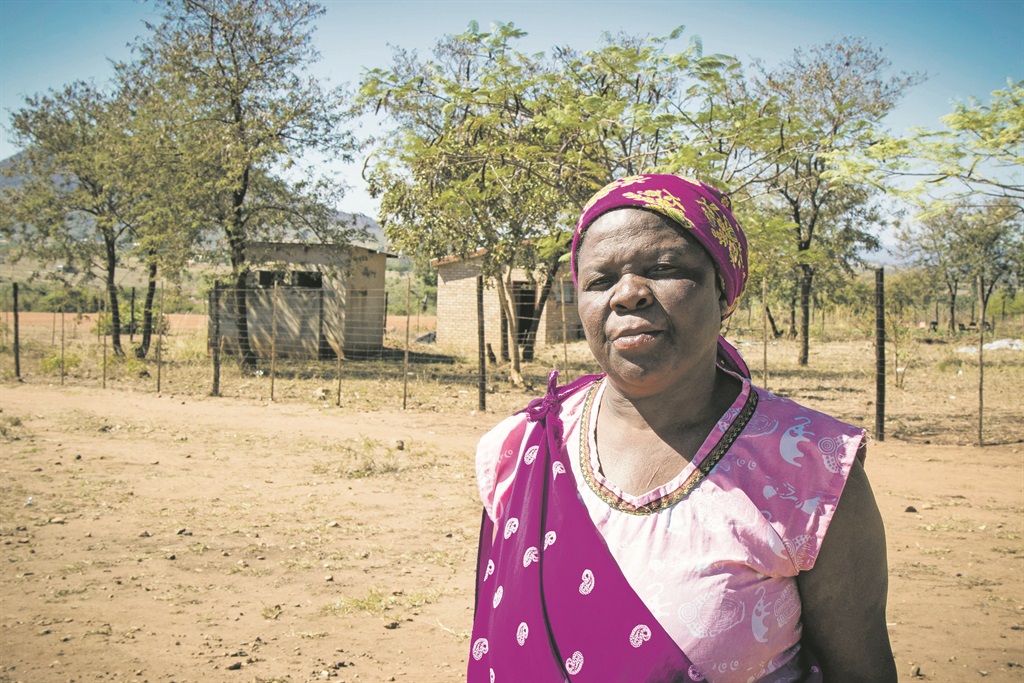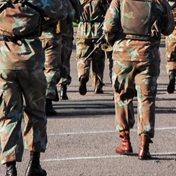
After only 10% of the troubled Limpopo region turned out to vote, Poloko Tau spoke to those who did – and did not – make their mark
Voted
"She’s really brave," said three young men as Dina Chauke ambled past them at a voting station in Vuwani, Limpopo, to cast her vote.
Chauke (64) was one of less than 13% of residents in her district to cast her ballot on Wednesday. By noon, only 22 residents had voted. By the end of the day, only 74 of its 576 registered voters had turned up. All of them voted for the ANC.
Wednesday did not feel like election day in Vuwani. There was no election branding at the Radzambo Secondary School in Matsila village, 35km from Elim, Limpopo. There were no queues in the wintry sunshine and the empty streets spoke of the silent hostility of mainly Venda-speaking residents who boycotted elections because they want their area to be returned to neighbouring Makhado – away from Tsonga-dominated Malamulele.
Protests against the municipal demarcation board’s decision have lasted for three months. All the schools are closed and more than 20 of them were torched. Radzambo was spared.
Three police officers stood outside one classroom used for voting, and several electoral officials sat and cracked jokes among themselves as they waited for the next voter – a long wait.
The three men outside were too fearful to reveal their names. One said of Chauke: “Most people her age won’t vote because of fear instilled in them. They are only thinking of their houses, which could be burnt down for going against what is portrayed as a consensus by the community to boycott the elections.”
One young man said he had voted, but only because everyone in the village knew that he was active within his party.
“I voted for my party. I agree with the community all the way, but I owe it to my party to come and vote ... I will deal with the consequences later,” he said.
Chauke said she was aware of the possibility of being labelled a “sellout” and of becoming a target of angry neighbours.
“I mean, really, if they do come for me and burn my house, what will they gain out of it? I am already living in poverty and have got nothing much to lose ... I am used to poverty,” she said.
Chauke has three grown children who are all unemployed. She lives with four grandchildren, and the whole family of seven relies on her pension grant and the child grants received for two of her grandchildren. She looks despondent for someone who has just voted. She also appears to have little interest in issues regarding municipal borders and cares more about whether calm will be restored to her neighbourhood.
“I don’t know much about all these things they are fighting about and am confused, actually. I do, however, agree that we have always been part of Makhado and are used to it ... I think we’d rather stay in Makhado and stop all this violence once and for all. That’s my prayer,” she said.
“If I am attacked, it’s all fine, but I mean I have got nothing much. It has taken time for us to get the right to vote, and I can’t miss the opportunity while I am still alive.”
Another person who voted in Matsila village was local traditional leader Chief Livhuwani Matsila, who said he was disappointed at the low voter turnout.
“This is victory against democracy. But on the other hand, I believe all this should serve as a lesson to us as traditional leaders and government on how we can handle such situations better, and prevent them before they explode in future,” he said.
Boycotted
The dust billowed and left a cloud of red sand in the air, but right behind the goalposts, Takalani Davhana didn’t seem to mind. In a dust cloud generated by the soccer match in front of her and by a large crowd of dancing community members behind her, the 50-year-old was in high spirits.
In Vyeboom village, situated next to the town of Vuwani in Limpopo, residents played far away from the voting stations.
While the soccer tournament went on, Independent Electoral Commission (IEC) officials waited in vain at the nearest voting station, at Tshinavhe Secondary School, for voters who did not arrive. They later packed up their empty ballot boxes and left, closing the station about two hours before the official 7pm cutoff time.
Instead of voting, residents organised a football extravaganza in which teams of elderly women, teenagers and other young people battled it out. About 50m away, music blared from large speakers, where an even larger crowd danced.
“This is where I’d rather be ... with my community. I am here enjoying myself with my own people and it is great because this does not happen every day. It shows just how unified we are,” Davhana said.
The excitement on her face vanished when she was asked about the new Malamulele municipality and the vote boycott.
“Why go vote under the banner of a new municipality that does not even have a name, but that was imposed on us? Things are not all rosy with Makhado municipality, but we are good there and want to remain part of it,” Davhana said.
The unemployed mother of three school-going children said she was not registered to vote in the first place. The IEC had struggled to register residents and verify their addresses over two registration weekends amid resistance from protesters, who blocked access to the registration points.
“I didn’t register. Not because there were protests, but because I saw no need to register and vote. I expect no change to my life anyway after these elections. I have been unemployed for years and volunteered in government for some time, but still got no recognition that would give hope that we will be employed at some point and, right now, I have given up,” she said.
“I live on odd jobs to make sure my children do not go to bed hungry. I have lost hope, and for them to decide to incorporate us into a new municipality makes things even worse.
“Surely there were development plans in the pipeline for our area, and for them to now want to take us to a nameless municipality may change it all. We may end up getting any service delivery very much later than we would have in Makhado.”
While many supported the boycott, others had little choice but to go along with it.
A young man at the Vyeboom games, who asked not to be named, said: “I believe voting is important if we are seeking to influence any decisions, but I could not as an individual go vote when most people are against it.
“A box of matches only costs 50c and that’s all they need to reduce my family’s house to ashes. This is why I can’t be seen anywhere near a voting station.”
Voting stations in Vuwani featured high on the list of 650 hot spots countrywide and Vyeboom was the most watched area.
Police took no chances amid threats that protesters would block IEC staff from entering the area. A police Nyala was parked a short distance away from the dancing residents, while a police helicopter made rounds overhead.




 Publications
Publications
 Partners
Partners








